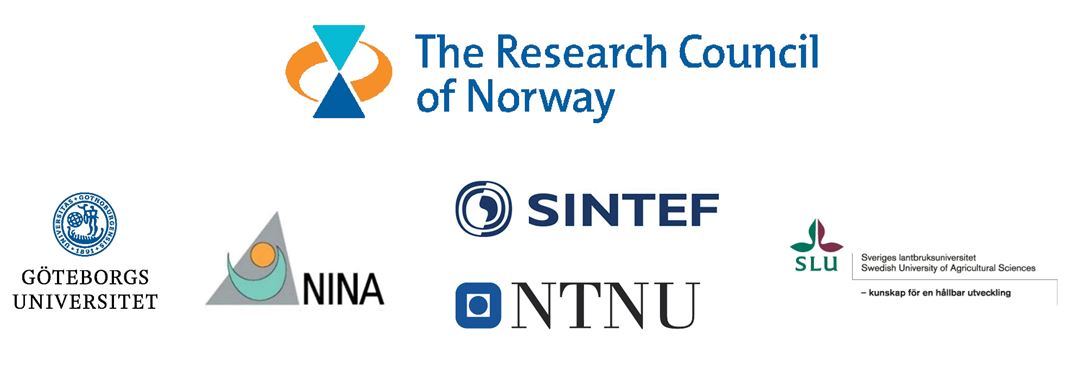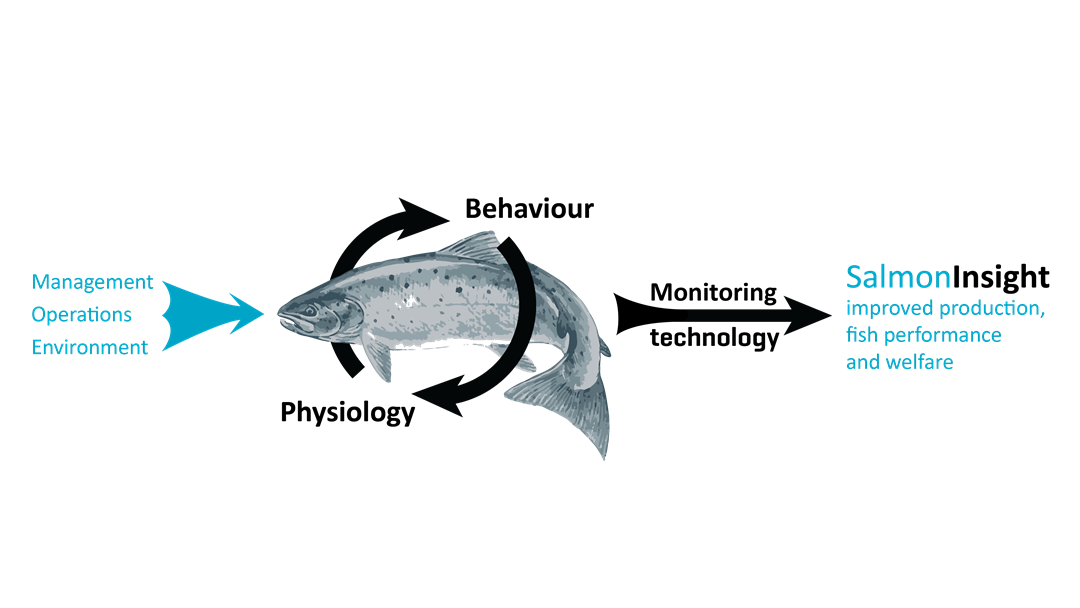SalmonInsight is a four-year research project funded by the Research Council of Norway which includes SINTEF Ocean, NINA, NTNU Departments of Engineering Cybernetics and Biology, the University of Gothenburg, and the Swedish University of Agricultural Sciences. The main goal of the project is to provide new knowledge on how physiology and stress in salmon is reflected in observable behavioural expressions. This will form a foundation for developing future solutions for online monitoring of salmon in sea-cages during production.
The total mortality rate through a grow-out phase in Atlantic salmon farming may be up to 19%. This is unacceptable, as high mortalities may mean that the fish are suffering during production in addition to being a large economic cost for salmon farmers. The first step in improving this situation is to monitor the physiology and stress of salmon during demanding operations (e.g. crowding) and under normal production to identify under which conditions the fish exhibit increased stress levels. Developing technologies for obtaining such data requires knowledge on how the physiology and stress of salmon is reflected in data possible to monitor online using state-of-the-art sensors. SalmonInsight will seek to answer these questions through laboratory experiments where fish are subjected to e.g. simulated crowding operations and conditions resembling life in a sea cage under normal operation. In these experiments, physiological data will be collected simultaneously with data possible to obtain in real time in sea cages using state-of-the-art sensors. The data will be used to develop new solutions for online monitoring of stress and physiology in sea cages that will be verified in a field study in a commercial cage.
The project partners in SalmonInsight are world leading in their respective fields and will collaborate to provide new knowledge and technology that will improve welfare and reduce stress in salmon production.
Since SalmonInsight was officially started in May 2018, a kick-off meeting has been held, and a PhD-candidate associated with the project has been hired. This candidate is developing new technologies for sensing of physiological data in free swimming fish and will be closely linked with experimental activities planned in SalmonInsight. The PhD activities have so far resulted in 3 scientific publications and a novel biosensing implant for Atlantic salmon. The implant measures acceleration, rotation rates, compass direction, magnetic field strength, temperature, electrocardiogram (ECG) and photoplethysmogram (PPG), thus enabling more accurate calculation of an activity proxy while enabling more robust heart rate estimation based on two independent sensing principles. The PPG also opens the prospect of estimating oxygen saturation in arterial blood, a complete novelty in fishes.
The first experiment in the project was a controlled laboratory study conducted in winter/spring 2019 where sensor tags were used to measure heart rate and activity on individual salmon held in tanks on land. The fish were subjected to artificial stress by repeatedly draining the tanks, simulating transient stress events such as those induced by aquaculture operations. Physiological samples collected before tagging, before and after stressing, and in post-stress recovery were used to correlate sensor values with the physiological response. The results from this experiment demonstrate that there are changes in heart rate and swimming activity in response to stress events that are consistent with blood proxies for stress levels in Atlantic salmon. This underscores the possibility of on-line stress monitoring in full scale production using tags. In addition, the experiments provided valuable information on fish recovery after surgical tag implantation. The results have been published in the form of two scientific articles.
The information gathered during the lab trials was essential in the follow-up experiment taking place in autumn 2020. In this trial with a similar set-up, 30 fish were observed before, during and after a crowding operation in meso-scale sea cages using both implanted tags as well as physiological values. The trial provided a wealth of data that are currently being analysed.
Experiments where fish carrying sensors are cannulated to establish the relationship between sensor values and physiological state in salmon in more detail were originally planned in 2020 but had to be moved. They are planned to be conducted in late 2021/early 2022.
Partners
The project partners in SalmonInsight are world leading in their respective fields, and will collaborate to provide new knowledge and technology that will improve welfare and reduce stress in salmon production.
- Research Council of Norway
- SINTEF Ocean
- NINA
- NTNU Departments of Engineering Cybernetics and Biology
- University of Gothenburg
- Swedish University of Agricultural Sciences


